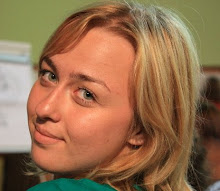Sometimes I find India extremely funny and ridiculous to some extent.
If you come to Delhi don’t miss a chance to go to Delhi metro and have a great amount of fun r eading metro rules. Here’s one of them: ‘Don’t go on the top of the train!’ (!!!) How the hell anybody can commute on the top of metro train??? Well as Indian sellers used to say: ‘everything is possible in India ma’’m’. Another rule is ‘not to spit in metro’. Well that’s pretty understandable considering the fact that everybody spit everywhere here. BUT the ridiculous thing is that fine for commuting on the top of the train is 50 rupees (1 USD) and for spiting 200 rupees! So spitting is considered as 4 times worse thing than having a ride roof of metro!
eading metro rules. Here’s one of them: ‘Don’t go on the top of the train!’ (!!!) How the hell anybody can commute on the top of metro train??? Well as Indian sellers used to say: ‘everything is possible in India ma’’m’. Another rule is ‘not to spit in metro’. Well that’s pretty understandable considering the fact that everybody spit everywhere here. BUT the ridiculous thing is that fine for commuting on the top of the train is 50 rupees (1 USD) and for spiting 200 rupees! So spitting is considered as 4 times worse thing than having a ride roof of metro!
Other people that can be very amusing are Indian beggars especially children. Last week I stuck in traffic on the way to market. Boy and girl of nearly 10 approached me. They definitely where together but boy stood a bit further. Girl asked me to buy 2 pencils for 10 rupees. She looked and talked really sweet so I bought those 2 pencils which basically I didn’t need. She thanked me and went away. And then boy come. And guess what he started to ask me to present him pencils as he really wanted to have them! Isn’t that brilliant? They didn’t actually beg but they found smarter way. How the hell can I stand not to buy 2 pencils from sweet poor girl? And how the hell I can stand of not presenting pencils to small boy that wanted them so much?? And besides I don’t feel bad that I encourage begging by giving money to children.
stood a bit further. Girl asked me to buy 2 pencils for 10 rupees. She looked and talked really sweet so I bought those 2 pencils which basically I didn’t need. She thanked me and went away. And then boy come. And guess what he started to ask me to present him pencils as he really wanted to have them! Isn’t that brilliant? They didn’t actually beg but they found smarter way. How the hell can I stand not to buy 2 pencils from sweet poor girl? And how the hell I can stand of not presenting pencils to small boy that wanted them so much?? And besides I don’t feel bad that I encourage begging by giving money to children.
And finally marriage ads in newspapers is smth that makes me hysterical when I read them. Enjoy one of them.This is actual letter taken form Times of India.
Madam :
I am an olden young uncle living only with myself in Lahore. Having seen your advertisement for marriage purposes, I decided to press myself on you and hope you will take me nicely. I am a soiled son from inside Punjab. I am nice and big, six foot tall, and six inches long. My body is filled with hardness, as because I am w orking hardly. I am playing hardly also.
orking hardly. I am playing hardly also.
Especially I like cricket, and I am a good batter and I am a fast baller. Whenever I come running in for balling, other batters start running. Everybody is scared of my rapid balls that bounce a lot. I am very nice man. I am always laughing loudly at everyone. I am jolly. I am gay. ladies, they are saying I am nice and soft. Am always giving respect to the ladies.
I am always allowing ladies to get on top. That is how nice I am. I am not having any bad habits. I am not drinking and I am not sucking tobacco or anything else. Every morning I am going to the Jim and I am pumping like anything. Daily I am pumping and pumping. If you want you can come and see how much I am pumping the dumb belles in the Jim.
I am having a lot of money in my pants and my pants is always open for
you. I am such a nice man, but still I am living with myself only. What to do? So I am taking things into my own hands everyday. That is why I am pressing myself on you, so that you will come in my house and my things into your hand.
If you are marrying me madam, I am telling you, I will be loving you very hard every day.. fact, I will stop pumping dumb belles in the Jim. If you are not marrying me madam and not coming to me, I will press you and press you until you come. So I am placing my head between your nicely smelling feet looking up with lots of hope.
I am waiting very badly for your reply and I am stiff with anticipation.
Expecting soon
Yours and only yours
Choudhary Warraich, born by mother in Okara and become big in Lahore, Punjab


